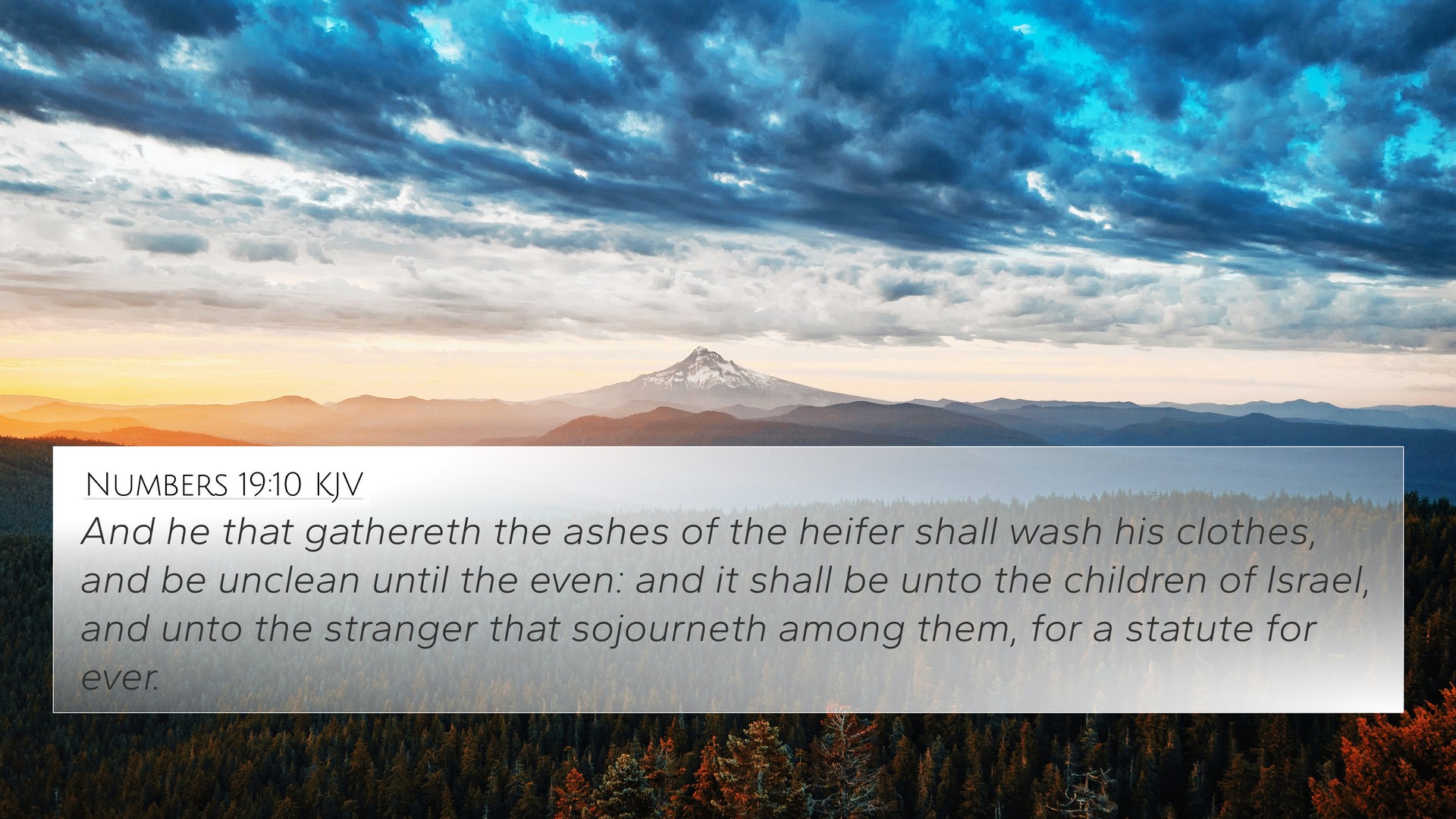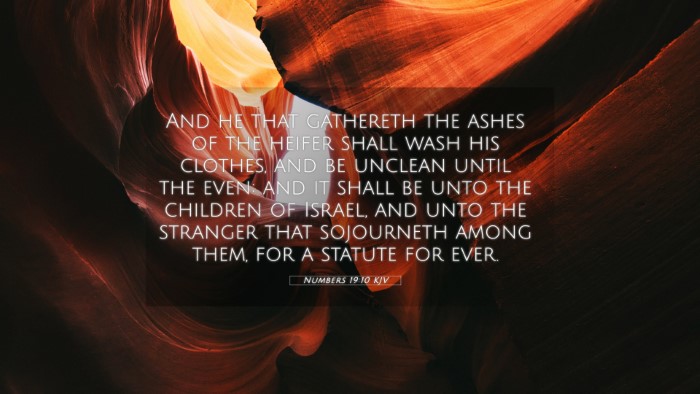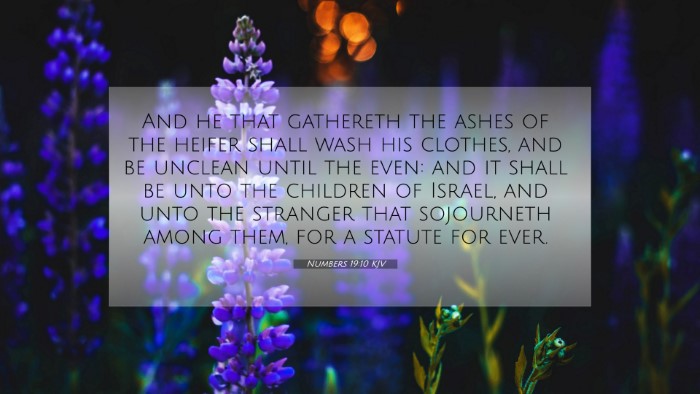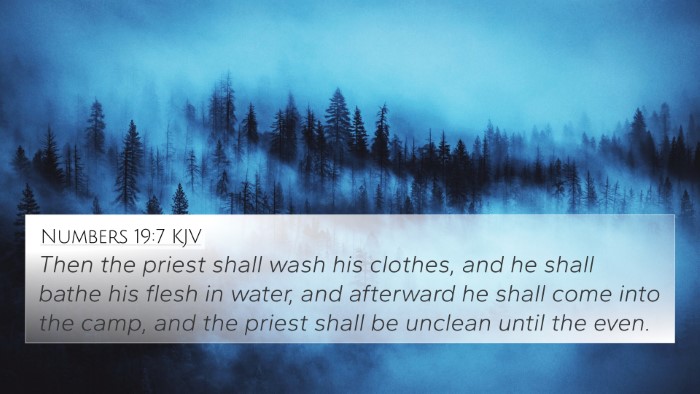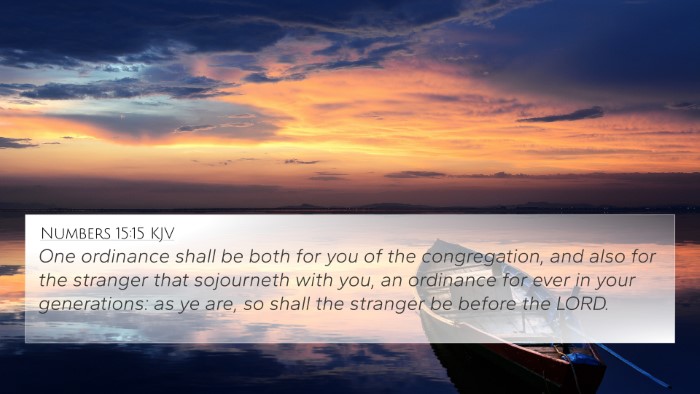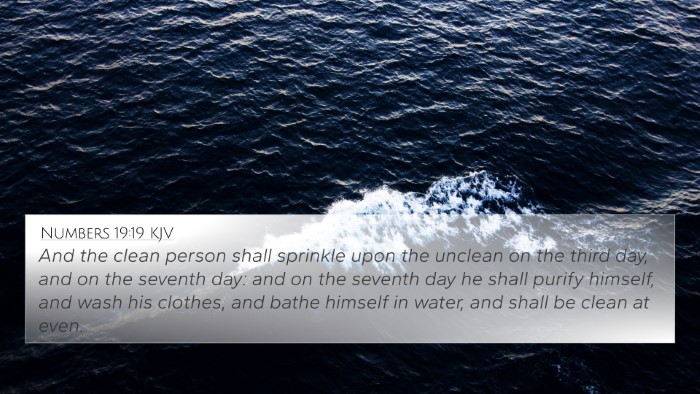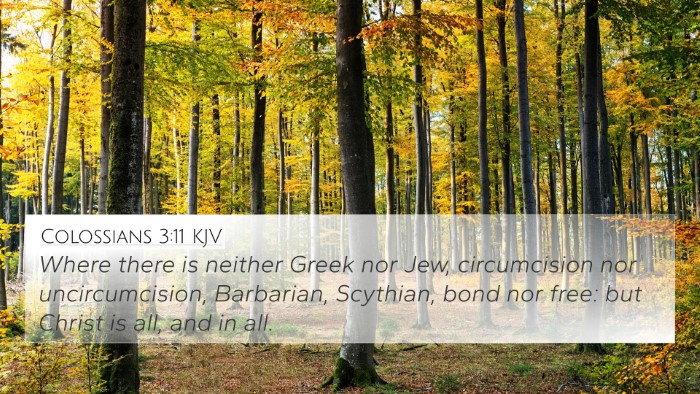Meaning and Interpretation of Numbers 19:10
Verse: Numbers 19:10 - "And the man that is clean shall gather up the ashes of the heifer, and lay them up without the camp in a clean place, and it shall be kept for the congregation of the children of Israel for a water of separation: it is a purification for sin."
Overview
Numbers 19:10 is part of the law regarding purification after encountering death. The ashes of the red heifer play a key role in this ritual, which speaks volumes about sin, cleansing, and communal responsibility. Below is a combined interpretation from public domain commentaries.
Commentary Summaries
- Matthew Henry:
Henry emphasizes the significant role that the red heifer's ashes play in purification rituals, underscoring that it symbolizes the gravity of sin and the need for atonement. He notes that the ashes must be collected by a clean man, highlighting the importance of spiritual cleanliness in performing sacred tasks.
- Albert Barnes:
Barnes points out that the process outlined in this verse ensures that the ashes are stored in a clean place, which signifies purity and separation from contamination. He discusses the theological implications, noting that this method of purification is God-ordained, illustrating both external and internal cleansing from sin.
- Adam Clarke:
Clarke elaborates on the symbolic meaning of the ashes, indicating that they serve as a means of conveying the seriousness of sin and the required practices for spiritual restoration within the community. His analysis ties the physical elements of the ritual to broader themes of redemption and God’s grace.
Thematic Connections
The verse establishes significant connections within the Bible that involve themes of purification and sin management. Here are some important biblical cross-references and thematic connections:
Key Cross-References for Numbers 19:10
- Hebrews 9:13-14: These verses draw a parallel between the purification rituals of the Old Covenant and the ultimate sacrifice of Christ, enriching the understanding of purification through His blood.
- Leviticus 14:4-7: Both passages relate to purification rituals, specifically for those who have encountered death and require atonement.
- 1 John 1:7: This verse emphasizes the cleansing power of the blood of Jesus, drawing a direct line to the need for purification from sin.
- Matthew 5:8: "Blessed are the pure in heart," relates to the overarching theme of inner purity, which the ashes symbolize.
- Romans 6:4: The theme of being buried and raised to newness of life connects with the idea of purification through sacrifice.
- Numbers 31:23: Discusses purification of items, further illuminating the distinctions between clean and unclean.
- Isaiah 1:16-18: Calls for cleansing on a personal level, echoing the communal aspects of purification in Numbers.
Understanding the Context
This verse is part of the Mosaic law, underscoring the holiness of God and the need for Israel to remain pure in their worship and living. The necessity of a 'clean' man gathering the ashes signifies that only those who are spiritually clean are entrusted with handling the sacred elements associated with God's ordinances.
Conclusion
Through Numbers 19:10, the Bible draws our attention to the seriousness of sin and the rituals established for its atonement. By exploring the cross-references and thematic connections between scripture, readers can gain a deeper understanding of the implications of purity and the role of Christ as the ultimate purifier, linking the old covenant protocols with the new covenant grace.
Tools for Bible Cross-Referencing
For those looking to study the connections between Bible verses more deeply, consider using a Bible concordance or a Bible cross-reference guide. These tools help in identifying thematic Bible verse connections and enable readers to explore numerous Bible verses that relate to each other.
